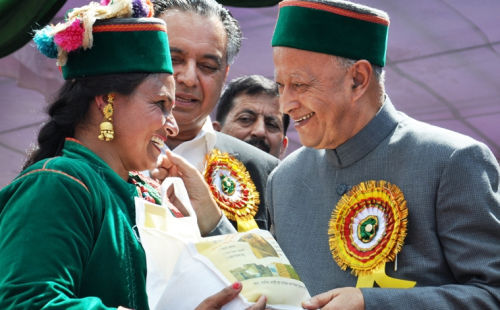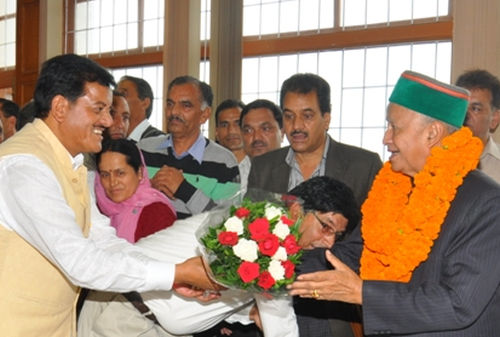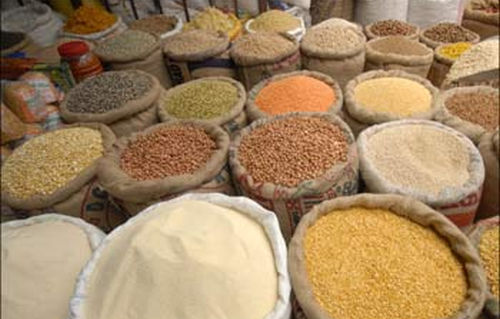Eyeing at the forthcoming parliamentary poll, scheduled for May 2014, Indian National Congress was trying to gain from its newly enacted food security ordinance, which party think thank claimed as historic and boon for millions of poor families.
AICC special representative Prem Chandra Mishra, who is now days propagating the benefits of the National Food Security Ordinance in Congress ruled states, today conducted a workshop for block Congress presidents at party Shimla office. HPCC chief Sukhvinder Singh Sukhu was also present at the event.
While addressing section of media at state headquarter, Mishra blamed BJP for “creating hindrances” in implementation the Ordinance and said giving right to food is not its “political initiative.” He claimed that Congress led centre government could have implemented the Food Security Bill two years ago had the opposition parties, especially BJP, behaved responsibly in the Parliament. Moreover, BJP continued changing statements on the bill and also gave wrong suggestions on the bill, he alleged.
Asserting that there was no motive to take political mileage out of the Food Security Ordinance, he said this bill was aimed at providing food to the poor at a cheaper rate.
Under this scheme, beneficiaries would monthly entitle of five kg of super subsidised foodgrain for up to 75 per cent of the rural and up to 50 per cent of the urban population. The current entitlement of Antodaya Anna Yojana (AAY) households (the poorest of the poor) will, however, continue at 35 kg of subsidised foodgrain every month. A beneficiary can demand rice at Rs 3 a kg, wheat at Rs 2, and coarse cereals at Re 1. Cereals are already being provided to AAY beneficiaries at these prices.
The prices of the grains have been fixed for a three-year period, after which they may undergo revision. The government may in future look at cash transfers or food coupons to beneficiaries in place of the grain entitlement.
To check its misuse, Ordinance provides for the creation of State Food Commissions, which will monitor and evaluate the implementation of the act, give advice to the state governments and their agencies and inquire into violations of entitlements.
Mishra claimed that Govt had tried to make it transparent as it provides a two-tear grievance redressal structure, involving the District Grievance Redressal Officer and state Food Commission. Local authorities and Panchayati Raj institutions will also be responsible for its proper implementations in the respective areas.







